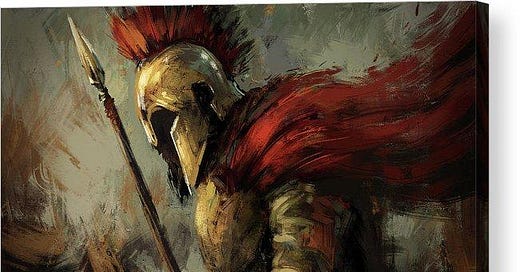The Spartans
There are 23 statutes of individuals honored in the chamber of the United States House of Representatives, one of them being Lycurgus, the legendary lawgiver and philosopher of Sparta, which was one of the most iconic societies in European history, and a model for militaries and leadership until this day. Lycurgus was known for maintaining a…
Keep reading with a 7-day free trial
Subscribe to Plato's Academy Centre Newsletter to keep reading this post and get 7 days of free access to the full post archives.





